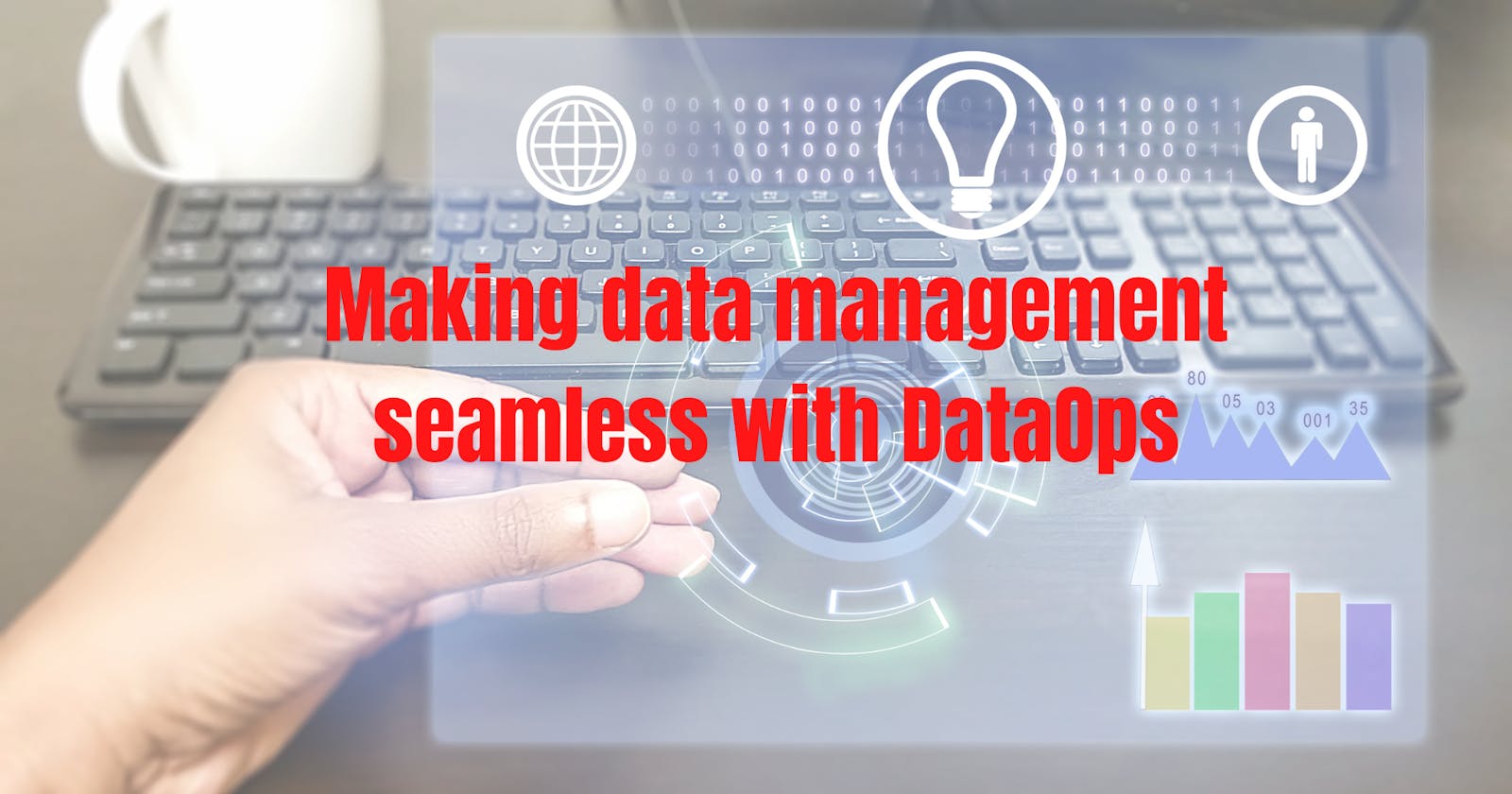Data management has become one of the major challenges faced by organizations today. The conventional data processing methods are proven to be inefficient to handle the voluminous data generated by them. Hence, a new supplant for traditional data management is required that can manage and prepare data analysis and reporting, giving scope to make strategic plans for better business outcomes. Data Operations, also known as DataOps, had revolutionized the data management process and has streamlined data ecosystems in the most unique way.
Data has an integral part to play in today’s digitally transformed world. With digitization further strengthening and reshaping all industries, the data volumes are also increasingly giving rise to big data scenarios. The demand for rapid decision-making and real-time analysis is also on the rise to keep up with the new data-driven trend. DataOps is the most suitable method to automate the data management process for better analytics and decision-making. It is also most compatible with modern DevOps environments, agile methodologies, and AL (Artificial Intelligence) ML (Machine Learning) integrations.
Understanding DataOps
DataOps is an innovative data management approach that combines advanced data governance and analytics delivery practices. It includes data management across the entire data life cycle ranging from data retrieval, data preparation, and data analysis, to data reporting. It also protects data privacy, prevents data integrity, and offers restricted data usage. DataOps is popularly being used by organizations to manage data analytics in the most compelling ways.
Benefits of DataOps
Improving data utilization: DataOps helps in efficiently exacting the maximum value from data. This process offers great scope to streamline the process, incorporate updates with ease, and improve competitiveness, thereby adding to higher business revenue.
Solving issues of unstructured data formats: Organizations generate huge data in both structured and unstructured formats. It is difficult to extract insights from unstructured data formats, which is considered to be one of the major business challenges. DataOps has the capability to efficiently identify, collect, and use data from unstructured formats.
Improving speed: Extracting, analyzing, cleaning, and improving the data is a highly complex task and often not performed efficiently using conventional methods. The speed of the entire process can be improved drastically while retaining accuracy.
Maximizing data productivity: In modern times, companies depend on data-driven approach for decision making. With organized and analytical data provided by DataOps, companies are making quicker decisions while improving productivity. The time-consuming, tedious data extraction process is replaced by automated DataOps systems.
Offering the right insights: Offering timely insights is one of the key functions of the data in any operating/development system. In conventional data management systems, the data insight is often provided late. Whereas, in DataOps the insights are given at the right time allowing the team to plan the future steps to be taken.
DataOps addresses some of the above-listed challenges efficiently, which are often a concern for other data management systems.
Increasing Focus on DataOps with Emergence of Big Data
The emphasize on big data is growing with the onset of digitization. Companies are generating big data to sustain in today's data-driven world. Big Data is an accumulation of voluminous data from which meaningful data can be extracted. The use of conventional data management process is seldom preferred in big data as it is huge and highly complex. Management of such huge data requires advanced DataOps systems. DataOps helps companies easily extract and use data for further business development processes.
Though DataOps offers an easy data management system for big data, one of the major concerns while handling big data is QA. Big data testing is a critical step that ensures that the big data functionalities and operations are performed as expected. Furthermore, it assures the big data system operates seamlessly without any flaws while maintaining security and performance.
The Future of DataOps
The need for DataOps is growing as companies are dependent on data-driven approaches like big data for decision-making. Data being a key part of digitization, and digitization already transforming the course of various industries, the scope of DataOps is only going to increase. The rate at which data-oriented approaches are used across the business landscape, and the adoption of DataOps management systems is also increasing. Further, the incorporation of AI/ML will only strengthen the DataOps by offering higher agility and improved efficiency.
The pace at which organizations are leveraging data to transform their legacy and advanced systems, DataOps will be seen as widely adopted. The scope of the DataOps management system will remain prominent in the future and its use will not reduce anytime soon.

